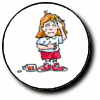Can rat poison (rodenticides) hurt kids and pets?
1.800.858.7378npic@oregonstate.edu
We're open from 8:00AM to 12:00PM Pacific Time, Mon-Fri
A to Z

Yes. Rat poisons or rodenticides are pesticides designed to kill rodents, like mice and rats. Rodents can carry diseases, damage property, and contaminate food. That’s why it is often important to control rodents effectively. It is also important to understand the risks of using rodenticides around children and pets.
If you suspect your child has handled or eaten a rodenticide, call the Poison Control Center at 1-800-222-1222 right away. For pets exposed to rodenticides, contact your veterinarian or an animal emergency resource.
All rodenticides can be toxic to mammals and birds when eaten. Most rodenticides are also toxic when breathed in or touched. People, pets, and wildlife can suffer from serious health effects after exposure to just a single dose of rodenticide.
Rodenticides are formulated as baits, which have ingredients that attract animals. For example, baits might contain peanut butter, molasses, or grains. These ingredients can be also attractive to children and pets.
Types of rodenticides
Many chemicals used to kill rodents are called anticoagulants. These chemicals cause uncontrolled bleeding by affecting a rodent’s ability to form blood clots. Symptoms may not be visible for up to five days after exposure. If left untreated, poisoning can lead to death.
Some rodenticides work differently than anticoagulants, but can still be very toxic to rodents and other animals.
For example, bromethalin can harm the nervous system, zinc phosphide produces a lethal gas within the body, and cholecalciferol increases calcium levels in the blood, leading to organ failure.
Reducing risk at home
Following the pesticide product label is the best way to reduce the risks. The label has instructions for how to apply the product properly and effectively. Some rodenticides can be used with bait stations. These devices allow rodents to access and eat the poison, but they keep children and pets out.
Rodenticide product labels typically provide warnings to keep the product out of reach of children. They might also include notes for veterinarians in case a pet eats the product.
In addition to reading the label, there are several ways to minimize risks.
- Contact a local extension office for rodent identification and pest control options.
- Consider integrated pest management and traps before buying rodenticides.
- Store pesticides where children and pets cannot access them. Consider locking them away or storing them up high.
- Check areas before allowing your children or pets to play in them.
- Use bait stations that prevent children, pets, and wildlife from getting hurt.
- Promptly remove dead rodents to reduce the risk of poisoning pets and wildlife.
- Safely dispose of unused products.
Is it safe to use rat baits around children and pets?
 |
Get Rid of the Mouse! With Kids In the House? Episode 10 - A specialist lists precautions to consider when thinking of using rat or mouse baits around pets and children. Download and Listen, View Transcript - 1:53 min., 3.45MB |
If you have questions about this, or any pesticide-related topic, please call NPIC at 800-858-7378 (8:00am - 12:00pm PST), or email at npic@ace.orst.edu.

